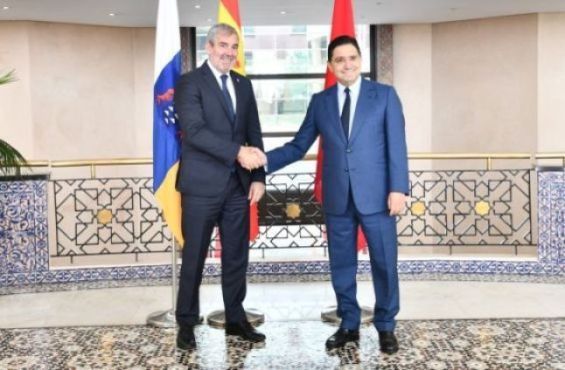Foreign Minister Nasser Bourita met with Fernando Clavijo, President of the Autonomous Government of the Canary Islands, in Rabat on Tuesday. The discussions focused on «managing migratory movements, combating climate change, advancing clean energy, and promoting partnerships in science, innovation, and training», according to Clavijo.
Despite his earlier criticisms of Morocco when he was in opposition, particularly regarding the country's «passivity» in protecting the archipelago from large-scale migration, Clavijo now praised Morocco’s cooperation in tackling irregular migration networks. He acknowledged that without Morocco's «enormous efforts», the situation in Spain and Europe would be «unmanageable». He highlighted the role of the 8,000 Moroccan soldiers deployed to control migration, stressing that without them, the situation would be uncontrollable for both Spain and the EU.
«We must recognize Morocco's crucial role in maintaining political stability and control. Morocco contributes to security, stability, and preventing mafias from operating and profiting from human trafficking».
Fernando Clavijo praises Morocco's actions
Clavijo also discussed the delimitation of maritime borders with Nasser Bourita. According to EFE, the Moroccan Foreign Minister remained open to negotiations on the matter, stating, «We just need to find solutions». Point 6 of the joint declaration adopted on April 7, 2022, in Rabat, following talks between Mohammed VI and Pedro Sanchez, confirms that «the working group on the delimitation of maritime spaces in the Atlantic seaboard will be reactivated to make concrete progress».
Bourita further emphasized Morocco's commitment to combat human trafficking networks, stressing the mobilization of the country's security forces to ensure that Morocco does not become an easy transit point. However, he firmly noted, «We don't need any lessons. Since 2013, Morocco has implemented a migration policy that has regularized 60,000 African migrants».
Bourita also condemned the use of migration issues by European parties and governments for political purposes, criticizing the fear-based narrative that frames migrants as criminals rather than targeting the networks behind them.
Clavijo, who also leads the nationalist Coalition Canaria party, announced plans to return to Morocco on October 24 and 25 for a scientific program with Mohammed VI University. He noted that representatives from public companies under his cabinet would accompany him, a detail he shared on X.
In office since June 2023, Clavijo's visit to Morocco marks his second, with the first taking place in January 2019.





 chargement...
chargement...













